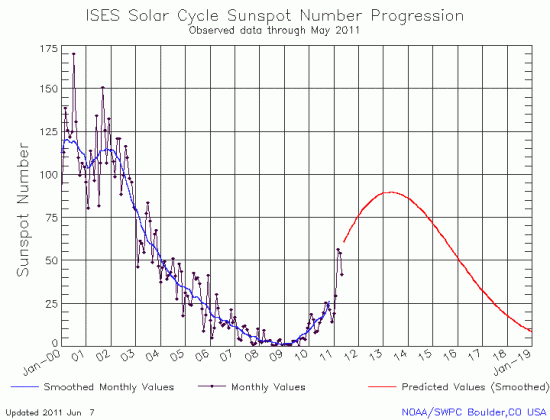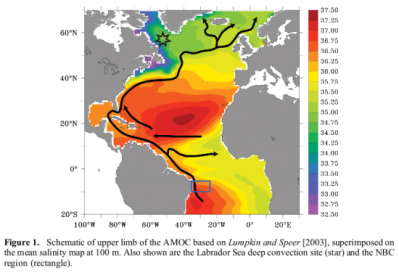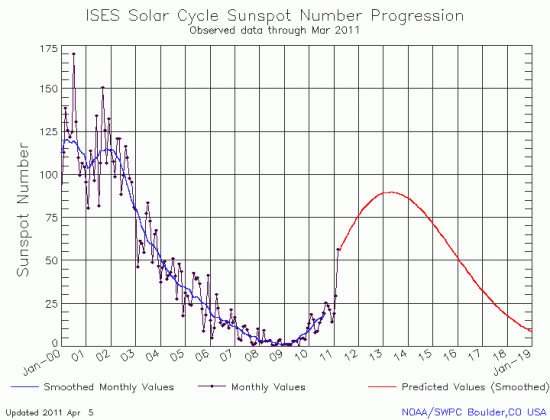After a burst the Sun quiets down again
Time again for the monthly updated graph of the Sun’s solar cycle sunspot activity. Posted today by NOAA’s Space Weather Prediction Center, you can see the May results in the graph below.
After a three month steady rise in sunspot activity in January, February, and March, the numbers plummeted during April and May. Though the Sun remains active, with only one blank day since January 16, the pattern of activity as it ramps up to solar maximum continues to suggest that we are looking for the weakest solar maximum in two hundred years, as now predicted by solar scientists at the Marshall Space Flight Center.
Whether this weak maximum foreshadows another Maunder-like minimum, with no sunspots occurring for decades, remains unknown. Only time will tell. However, if such a thing should happen, it will be a marvelous opportunity for scientists to finally pin down precisely the actual influence of the Sun on the Earth’s climate. Up until now they can only guess at how much the Sun varies in brightness. Another Maunder Minimum will tell them.



